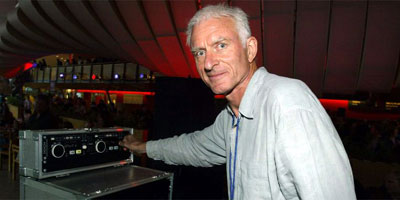So rock’s other big loss this week, the death of writer/DJ/indie label founder Charlie Gillett, has had me thinking about the title, if nothing else, of his classic early rock history book, The Sound of the City. The reason I stress the title is because I have a terrible memory and what I want to discuss may actually have little to do with Gillett’s book.
Continue reading »
I haven’t written one of these in a while, but Mick Green of the Pirates died last month, and it inspired me to take a look at the strain of pub rock that was about the ROCK. As we saw in earlier installments of this series, pub rock started out as a sort of weedy Americana, leaning towards the countryish and folky. But as the scene evolved, the British strain of maximum R&B came to the fore, and pub crowd came to prefer a rowdier night out. So pub rock was part of the awakening of sleepy early ’70s pop music, and it eventually came wide awake when it mutated into punk rock.
The roots of the Pirates go back to the early ’60s. As Johnny Kidd & the Pirates they were one of the first credible British rock groups. Their big hit was “Shakin’ All Over.” I can’t find a good YouTube of them playing it, so I’ll post this awesome clip of a version by another iconic early British rocker, Morrissey favorite Vince Taylor:
hPxmPdDQtQA]
Many people covered this song, notably the Who on Live At Leeds. It’s a great riff, but it’s not originally Mick Green’s. He joined the Pirates after it was recorded (in 1960 with Joe Moretti on lead) and left to join Billy J. Kramer & the Dakotas in 1964. Kidd died in a car accident in 1966.
As a side note, I’ll just copy this story from Wikipedia:
The original recording was not a hit outside of Europe. Instead, “Shakin’ All Over” gained fame in North America after Chad Allan and the Expressions covered it in 1965, where it was a #1 hit in Canada. Several months later, concerned that the effect of the British Invasion might eclipse the potential for success in the US by a Canadian act, the record label issued the song to radio stations in the States on a white label, with the artist listed as Guess Who? This became the first hit for the group in the states, reaching #22 and leading Chad Allen and the Expressions to change the group’s name to Guess Who.
Here’s the Guess Who’s version:
Continue reading »
I felt a little bad after calling bands “also-rans” last time I posted about pub rock, but in a way all of them were also-rans. It wasn’t a big scene, and I think only Dr. Feelgood ever had actual hits. Pub rock evolved as an alternative to the arena rock culture of the early ’70s, and it was a strange brew that bubbled under briefly before being swallowed up by punk rock, the appearance of which forced the pub rockers to evolve or die.
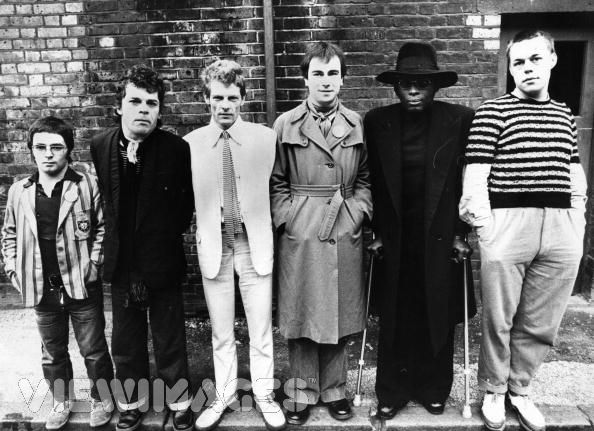

One of the more interesting cases was Ian Dury’s first band Kilburn & the High Roads. Named after the main thoroughfare in Kilburn (ie, the ancient Kilburn High Road), an area of north London known at the time for having large Irish and black populations, the band was formed while Dury was still a lecturer at the Canterbury College of Art. Anyone who has looked into the history of British rock knows how influential the art colleges were in the ’60s and ’70s, and Dury had studied with the famous Peter Blake at the Royal College of Art. Most of the original members of the band had been students of Dury’s, and they seemed more like a random collection of characters having a laugh than a group of professional musicians. Here you can see the early version of the band stumbling through “Mumble Rumble & the Cocktail Rock” on the Old Grey Whistle Test, in 1973.
dhFaSuRP1uE]
What I find most interesting about this band is that you can see and hear the elements that would go into Dury’s success with the Blockheads, though the mix isn’t quite there yet. In that clip you can notice his fascination with ’50s rock. In fact the story goes that Dury was inspired to go into music by the death of Gene Vincent in late 1971. Notice that Dury wears black leather gloves in these clips as a tribute to Vincent.
Continue reading »
Here’s a story that’s been told before, in one way or another, but it’s worth telling again.
The whole Pub Rock/Pure Pop for Now People Dream was running its course. Nick Lowe put out an album called Nick Lowe & His Cowboy Outfit. Nick assembled what, on paper, looked to be a band worthy of the legacy of Brinsley Schwarz and Rockpile. His Cowboy Outfit included Rumour guitarist Martin Belmont and Ace lead singer-turned-session man and super-sub Paul Carrack. Rockpile guitarist Billy Bremner even played on a couple of tracks!
Continue reading »
In my first post about Pub Rock I said that one of the things it was about was the conversation between black and white musical styles. It was also about the musical conversation between the US and the UK.
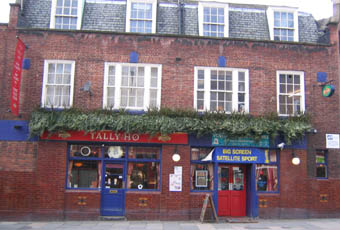

The British fascination with American roots music is well-documented, and in the early ’70s the influence of The Band, The Byrds/Burritos, and CS&N was especially important for the bands that unwittingly started the Pub Rock “movement” by playing off nights at the Tally Ho in London.
I had previously known Bees Make Honey and Eggs Over Easy only by name, but I recently acquired the only albums released by these bands that were there at the inception of that scene in the early ’70s and then disappeared into obscurity.


Everyone knows (at least everyone who might visit RTH regularly knows) that Elvis Costello was backed on his first Pub Rockish album by members of expatriate American band Clover. But it was another American band called Eggs Over Easy that started it all. They had been brought over to record an album in London by Chas Chandler, former Animals bassist and discoverer of Hendrix, in late 1970.
They recorded an album that was never released, jump-started the scene by convincing the Tally Ho to host rock bands on Monday nights, hung around for a year or so, and then with work visas expired went back across the Atlantic, eventually getting signed by A&M and re-recording their material in Arizona with Link Wray producing for an album that would be released in 1972 as Good ‘N’ Cheap.
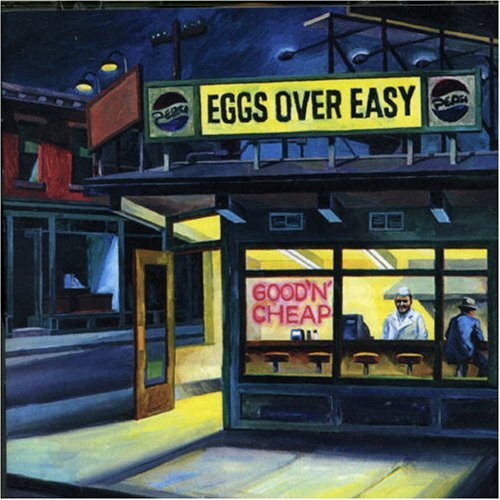

A trio of singer-songwriters who traded off on guitar, bass, and piano – Jack O’Hara, Austin DeLone, and Brien Hopkins – the Eggs had a much mellower sound than you might expect. Pub Rock later became altogether rowdier with bands like Dr. Feelgood, but there was always a side of it that was more laid-back, leaning towards country/folk rather than R&B. Early Brinsley Schwarz was very much in this mode. Here’s a song with an acoustic feel that would not have sounded out of place on a Poco album:
Eggs Over Easy, “Runnin’ Down to Memphis”
Here’s one that gives more of a sense of what the band might have sounded like in a pub playing rockin’ good-time music for people who just want to have a beer and a laugh:
And sometimes they seem to be working towards a sound that goes beyond easily recognizable genres:
But the band never got anywhere. They knocked around for the rest of the 70s, recorded more material, some of which got released (for example the semi-legendary “I’m Gonna Put a Bar in the Back of My Car (And Drive Myself to Drink)”, included here as a bonus track), but by the time they broke up in 1981 the pub rock scene they inadvertently initiated had already been overtaken by punk.
Next: Eggs may be over but Bees Make Honey…
Continue reading »
I love pub rock. There’s no clear definition of the style, but it was a mid-70s British phenomenon, a back-to-basics trend that was never wildly popular, a precursor to punk, and many pub rock musicians carried on into the punk era. Brinsley Schwarz is probably the best-known exponent of the style, which I think of as a mixture of black and white musical genres – rock, R&B, country, folk, and pop. The conversation between black and white is what rock & roll is all about to me, and pub rock was a peculiarly British take on that conversation.
I’m going to write an irregular series about pub rock here, and I want to start with a man who could be called one of the progenitors of the style. He was also a player in what could be called the secret history of rock & roll.
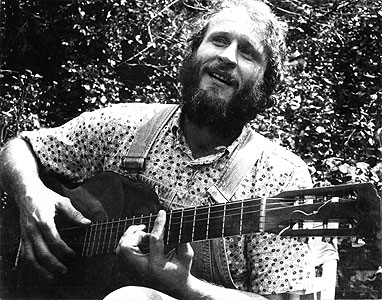

Jim Ford is one of those legends that almost no one knows about. If he’s known at all it’s because he wrote the song “Niki Hoeky,” which was recorded most famously by Aretha Franklin on the Lady Soul album. Here’s Bobbie Gentry doing “Niki Hoeky” on the Smothers Brothers TV show. Note the authentic Cajun mise en scene:
Ford’s other claim to fame is that Nick Lowe has cited him as his biggest influence. But let me back up a bit and give a little background on Ford himself.
Continue reading »

